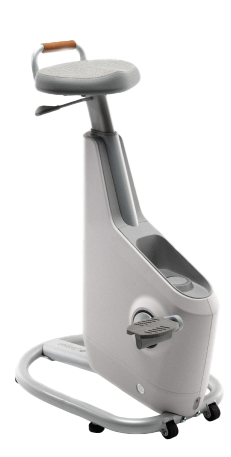
Calculate Your Daily Calories
Use this calorie calculator to determine how many daily calories your body needs to lose, gain, or maintain your weight.
Activity Level Defined
According to the most commonly used formula, activity levels are defined as follows:

Sedentary Lifestyle
Little or no exercise
Lightly Active Lifestyle
Light exercise or sports 1-3 days/week.
Moderately Active Lifestyle
Moderate exercise or sports 3-5 days/week.
Very Active Lifestyle
Hard exercise or sports 6-7 days/week.

Extra Active Lifestyle
Hard exercise or sports 6-7 days/week.
Note: This calculator will under-estimate calorie needs for very muscular individuals and will over-estimate calorie needs for over-weight individuals.
|
Male Female |
||
|
|
||
WHAT ARE CALORIES?
A calorie is a unit of energy. Generally, a calorie refers to energy consumption through food and beverage consumption and the amount of energy usage spent through physical activity. Everyone requires different amounts of energy per day depending on their age, size, and activity levels. Using the calculator above will help you determine your specific daily caloric needs.
In order to maintain your current weight, you must consume the same number of calories as you burn. Conversely, if you want to lose weight, this can be accomplished by consuming less calories or burning more calories. If you wish to consume less throughout your day, you will want to eat 500-1,000 fewer calories per day than calculated, or as an alternative, eat 15-20% fewer calories than calculated.
If you wish to burn more calories over consuming fewer, you should increase your physical activity – you can consume more calories and still sustain weight loss as long as you eat fewer calories than calculated. Keep in mind that leaner bodies need more calories than less lean bodies. Lastly, if you wish to gain weight, you need to consume more calories than you burn. This should be accomplished by having a caloric-dense diet with regular exercise.
Basal metabolic Rate (BMR)
Your Basal Metabolic Rate (BMR) measures the amount of calories your body burns while at rest. Some body processes requiring energy, such as breathing, blood circulation, controlling body temperature, cell growth, brain and nerve function, and contraction of muscles.
Your BMR accounts for roughly 60 to 75% of your daily calorie expenditure.
BMR will always vary from person-to-person. Some intrinsic factors affecting your Basal Metabolic Rate include weight, height, gender, body composition and temperature, age, hormone levels, and your overall health.
In General, Metabolic Rates Will:

increase with an increase in body weight and height.

be lower in fat tissues that muscle tissue.

be lower in women than men.

decrease with age.

increase with an increase in body temperature.

vary in response to T4 hormone levels.
To lose weight, you will need to reduce your daily caloric intake below your total daily calorie requirement indicated by your BMR plus your activity level. A few ways to increase your activity levels range from dedicating more time to working out or finding little ways to stay more active throughout the day.
If you’re looking to burn more calories without sacrificing a lot of time from your day
consider getting a treadmill at home. Having a treadmill at your home is a great way to workout without taking the time to drive to the gym. To save even more time in your day, a treadmill desk or bike desk enables you to burn calories while staying productive. Studies show that using a treadmill desk or bike desk while you work can even improve your focus and boost your productivity.
Lifespan Fitness is a leader in offering a full line of office wellness and everyday fitness products. With our treadmill desks, bike desks, standing desks, or ellipticals, you’re sure to find a fitness machine to fit your needs.
Contact us today to see how we can get on track toward better health.






















